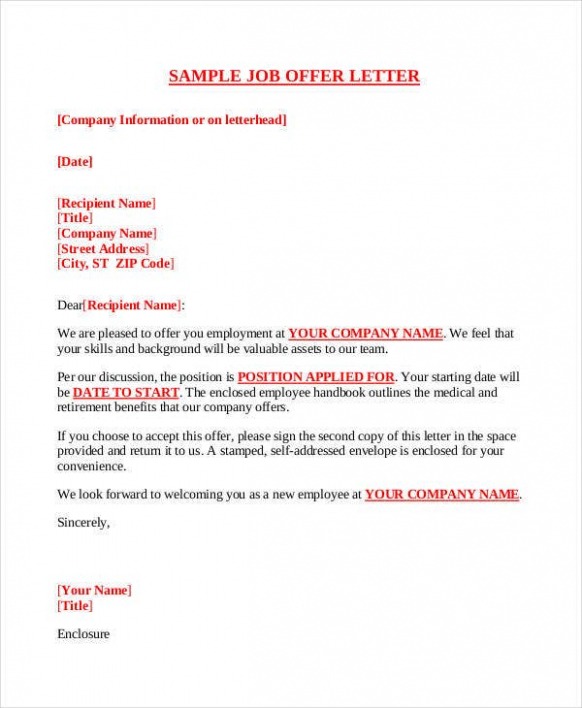Company Offer Letter Template Taxpayers experiencing tax obligation debt problems seldom compare the internal revenue service offer in concession with the Phase 13 personal bankruptcy. Often, the Phase 13 will certainly give a more particular remedy for the taxpayer to resolve tax financial debt. This article checks out the relative benefits of both the offer in compromise as well as Chapter 13.

An offer in concession may be the most promoted tax obligation remedy. You can not listen to radio or enjoy television without being pestered by advertisements to settle your tax obligation financial obligation. Usually the ads announce that the internal revenue service has revealed that leniency in the collection of the tax obligation financial obligation exists for a restricted time. The unfortunate fact is that the compassion news by the internal revenue service was commonly for various other issue area, such as tax obligation sanctuaries. The internal revenue service declines around 85 percent of all offers in compromise filed as a result of uncertainty as to collectibility. Offers in concession are generally filed because the taxpayer thinks the tax obligation financial debt can not be paid, Question regarding Collectibility is one of the most usual type of deal in concession. Various other kinds of offers in concession are outside the scope of this article.
The advantage of the deal in compromise is that the tax liabilities, including the related penalties as well as interest, are decreased to the amount the internal revenue service as well as the taxpayer concur can be paid. Both parties have to agree to the regards to the offer in concession. The offer in compromise is a contract between the internal revenue service and also the taxpayer. The regards to the contract can be enforced versus the taxpayer along with the internal revenue service.

Approval of the offer in compromise takes place when the internal revenue service believes that the deal is at the very least as long as could be collected by the IRS over the 10 year life of the law of constraints. The internal revenue service will turn down an deal that is for a minimal quantity than it might otherwise gather.
The IRS uses a uniform set of financial requirements that are not adaptable in both the evaluation of the quantity paid monthly in an installment arrangement and also in an deal in concession. These standards restrict the expenditures for living that the taxpayer can declare are essential for living. The criteria include food, housing and also utilities, transportation, as well as out of pocket health and wellness cost. The standards might create extreme troubles for a taxpayer with a moderately higher standard of life. Overhead are not affected by the requirements.
The analysis of the minimal deal in concession that will make the offer processable is the equity in the taxpayer’s assets plus the amount that could be paid in an installment contract over a specific period of time. The period of the future month-to-month settlements considered by the internal revenue service depends upon exactly how the deal will be paid by the taxpayer. The internal revenue service wants 48 months of regular monthly repayment if the taxpayer provides a round figure. The internal revenue service desires 60 months of regular monthly settlement if the deal is to be paid in a short term agreement of two years or less. Nonetheless, the internal revenue service will certainly consider valid issues such as retired life and also health and wellness of the taxpayer in shortening the period of the multiplier.



